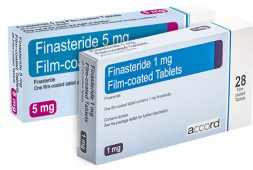Disregarded Drug Shows Promise For Crohn’s Disease Treatment – Helping Patients Avoid Surgery

A groundbreaking clinical trial has unveiled a revolutionary approach to treating Crohn’s disease, a chronic condition characterized by inflammation of the digestive tract.
This study, spearheaded by researchers from the University of Cambridge, offers promising evidence that early initiation of advanced therapy upon diagnosis can substantially enhance patient outcomes, potentially transforming the landscape of Crohn’s disease management.
Crohn’s disease poses significant challenges to those affected, manifesting in symptoms such as abdominal pain, diarrhea, weight loss, and fatigue. Despite its varying severity, the impact on individual’s quality of life and be profound, often accompanied by comorbidities such as inflammatory bowel disease and ulcerative colitis.
The Cambridge-led study enlisted 386 patients diagnosed with active Crohn’s disease, demonstrating the profound impact of administering infliximab immediately following diagnosis.
Infliximab functions by inhibiting TNF-alpha, an inflammatory cytokine ubiquitous in various diseases, thereby mitigating acute inflammatory responses such as swelling. Despite its efficacy, historical apprehensions regarding infliximab’s cost and side effects have restricted its usage to cases of recurrent flare-ups resistant to less potent treatments.
In order to assess the potential efficacy of this drug, researchers conducted a trial wherein two groups were assigned: one following the conventional UK treatment plan and the other receiving immediate infliximab therapy soon after diagnosis.
The outcomes, detailed in The Lancet Gastroenterology and Hepatology, were striking. A remarkable 80% of individuals who underwent immediate infliximab treatment experienced both symptom relief and control of inflammatory markers throughout the entire year, in stark contrast to a mere 15% among those adhering to the standard UK treatment regimen.
Of those in the infliximab group, two-thirds exhibited no ulcers during their endoscopy camera examination at the trial’s conclusion, indicating endoscopic remission. This achievement is associated with a reduced risk of subsequent complications in Crohn’s disease, underscoring the significant of this therapeutic approach.
Traditionally, clinical trials of therapeutic interventions consider achieving endoscopic remission in one-third or fewer patients as successful. However, the findings of this trial defy convention, presenting a potential breakthrough in the management of Crohn’s disease.
Dr. Nuru Noor, of Cambridge’s Department of Medicine, said, “As soon as a patient is diagnosed with Crohn’s disease, the clock is ticking—and has likely been ticking for some time—in terms of damage happening to the bowel, so there’s a need to start on an advanced therapy such as infliximab as soon as possible.”
“We’ve shown that by treating earlier, we can achieve better outcomes for patients than have previously been reported.”
Additionally, individuals in this cohort reported higher quality of life scores, reduced reliance on steroid medication, and fewer hospitalizations.
Notably, while approximately one in 20 patients in the conventional treatment group of the trial necessitated urgent abdominal surgery for their Crohn’s disease, only one in 193 participants subjected to the novel approach required such intervention.
Furthermore, the researchers observed no discernible disparity in the risk of serious infection between the two treatment strategies, suggesting that administering infliximab immediately after diagnosis was well-tolerated, counteracting previous apprehensions regarding its safety.
Toby Moore, a 28-year-old participant in the study diagnosed with Crohn’s disease at the age of 10, highlights how these concerns deterred him from receiving infliximab outside of acute flare-ups, resulting in years of unnecessary suffering and complications.
In terms of financial considerations, the cost of the drug has significantly decreased from approximately £15,000 to around £3,000 per patient per year.
Professor Miles Parkes, Director of the NIHR Cambridge Biomedical Research Center, said, “Up until now, the view has been ‘why would you use a more expensive treatment strategy and potentially over-treat people if there’s a chance they might do fine anyway?’”
“We now know we can prevent the majority of adverse outcomes, including the need for urgent surgery, by providing a treatment strategy that is safe and becoming increasingly affordable.”
The Cambridge researchers emphasize that despite the availability of alternative anti-TNF drugs like adalimumab, which operate similarly to infliximab and are notably more affordable, further research is necessary to ascertain their comparable clinical efficacy.
The team envisions their findings as the inception of a novel treatment trajectory for individuals grappling with Crohn’s disease, potentially leading to reduced hospitalization durations and a greater opportunity to engage in fulfilling life activities.



